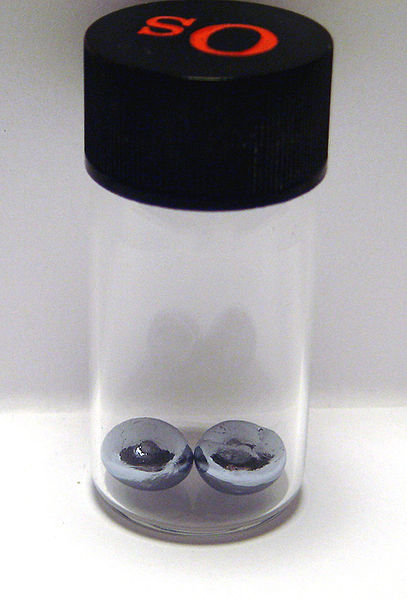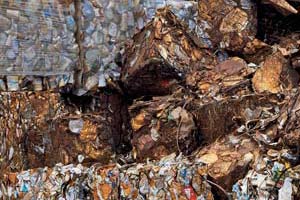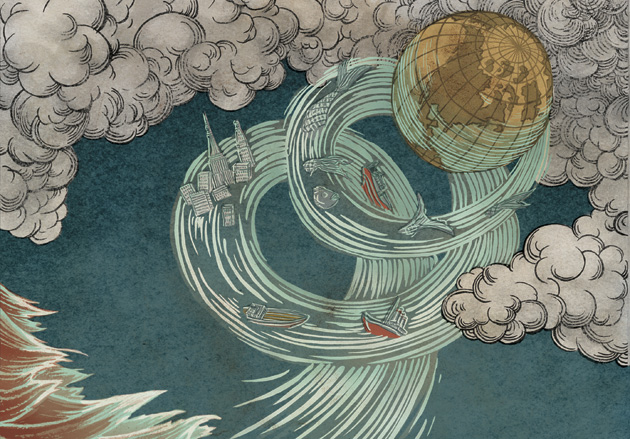
Wikimedia Commons
The rare element osmium is on the rise globally. Why? Because of the increased consumption of refined platinum, the primary ingredient in catalytic converters used in cars to reduce smog.
Ooops. Hate it when that happens. You know, unintended consequences.
A volatile form of osmium is generated during platinum refinement and also during the normal operation of cars and is now dispersed globally through the atmosphere. Osmium occurs naturally. But Dartmouth researchers were surprised to discover that most of the osmium in rain, snow, and in the surface waters of rivers and oceans is produced during the refining of platinum. Their paper is forthcoming in PNAS.
“It’s interesting, maybe ironic, that we stopped adding lead to gasoline in the 70s so that catalytic converters could be introduced to remove smog from car exhaust,” says Dartmouth Associate Professor of Earth Sciences Mukul Sharma.
The research team measured osmium in precip in North America, Europe, Asia, and Antarctica, in surface water and deep water from the North Atlantic, Pacific, Indian, and Southern Oceans. Human-made osmium also comes from chromium smelters, hospital incinerators, and the normal operation of cars, but it’s primarily the industrial extraction and refining of platinum that produces the bulk of the osmium found in rain and snow.
Some 95 percent of the world’s platinum comes from South Africa and Russia where it’s roasted at extremely high temperatures during extraction and refinement. The heat turns the sulfur in the ore into sulfur dioxide and releases osmium. Neither country has environmental regulations for the process.
“It’s surprising that we are seeing this measurable increase in osmium on a global scale,” says Sharma. “And we can virtually blame it on one thing: our insatiable demand for platinum-based catalytic converters. Fortunately, unlike lead, the concentration of osmium in water is extremely small and may not adversely affect biology.”
Well let’s just hope that’s true.











